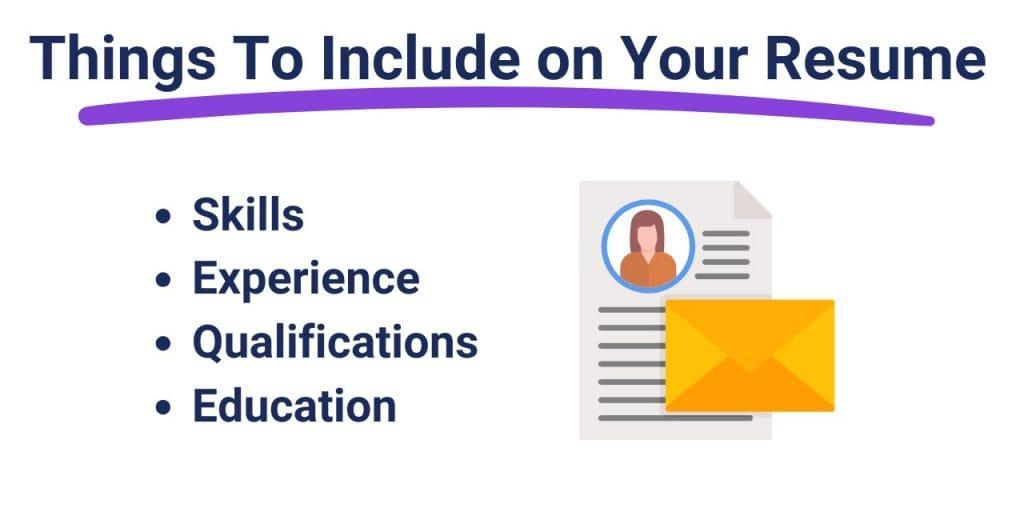The fastest growing
Restaurant & Hospitality
Job Platform
It's very easy to Post a Job
Find Top-Paying Jobs & Salary Trends
Over 350,000 active monthly users and growing
What is OysterLink?

WATCH VIDEO
1 MINUTE
Why OysterLink Is The Best Hospitality Job Search Site
For those in the restaurant, hotel or events industry, OysterLink stands out as the top choice for your hospitality job search needs. Unlike general job boards, OysterLink is tailored specifically for the hospitality sector, making it the ideal platform for hospitality employers and job seekers alike.
For recruiters and hiring managers, OysterLink makes it easy to promote your job openings. You can post jobs for virtually any role — from entry-level to management — and reach over 400,000 professionals actively looking for hospitality work.
For job seekers, OysterLink offers an amazing job section, where you can find jobs for 40 different hospitality positions. There
are even specific sections covering different cities like Miami and New
York City, so you can search for positions in your city only.Read More
What Is a Hospitality Job Platform?
A hospitality job platform is a specialized job search website that caters to the unique needs of the hospitality industry. Rather than a one-size-fits-all approach, these types of platforms focus on specific roles typically only found in restaurants, hotels, events and other service-oriented businesses.
For many job seekers, this type of site offers a more targeted way to find relevant opportunities within the crowded hospitality sector. Employers, on the other hand, can streamline their hiring process by connecting with candidates who are more likely to have their required or preferred skills and experience.
This is where understanding the hospitality job definition becomes essential, as it encompasses a range of positions and roles, from Chefs and Cooks to Hotel General Managers and other hotel staff.
Unlike general job boards, a hospitality job platform also provides insights into industry-specific trends and requirements. You’ll often find resources that are helpful for navigating hospitality careers, such as interviews with industry experts, tips on certifications, guides on popular roles and even hospitality press releases.
Hiring for this role?
Looking for top paid jobs?
How To Find The Best Job Search Site
Choosing the right job search site can make all the difference when seeking a career in hospitality. While general job boards can be useful, platforms that cater specifically to hospitality can significantly improve your chances of finding relevant job postings.
Start by assessing your career goals — do you want to work in a fast-paced restaurant, a luxury hotel or maybe even a private event planning company? If you're an employer or a hiring manager for any type of establishment within the hospitality industry, you can use these specific platforms to post your job ads and get applications fromindustry-specific workers.
Search for industry-specific platforms
Some job platforms cater exclusively to hospitality roles, such as OysterLink and Vancouver-based Hcareers. These are ideal for targeted searches since their listings are all focused on hospitality, saving you time from sifting through unrelated jobs. Also, industry-specific boards are more likely to attract experienced candidates with relevant skills.
Check reviews and user feedback
Reading reviews and testimonials can offer helpful insights. Look for feedback from both job seekers and employers to get a sense of each platform's strengths and weaknesses. While one platform might have an intuitive layout, another might offer better support and user features.

OysterLink, for example, has a nearly-perfect 4.9/5 score on Glassdoor, with employees praising the positive work environment, healthy work-life balance and excellent management staff.
Assess platform features
Look into each platform's features and tools. Most hospitality job boards are difficult to use, register on or even post a job. OysterLink makes posting a hospitality job as easy and hassle-free as possible.
If you're an employee, look for hospitality-specific tools and tips. Some platforms even allow you to filter jobs based on experience, location or role type. A great feature many employees seem to love is a helpful resource section that's full of resumes, industry insights and how-to guides.
What Makes a Job Board Great?
There are multiple factors that make a job board great. Depending on your needs and specific requirements, you might prioritize some more than others.
Cost-effective for employers
A great job platform has to be cost-effective for employers. For instance, Qwick is a popular hospitality job board that doesn't charge per job post, but their pricing model charges employers 40% on top of the freelancer's hourly pay. This way, you only pay if you find a new hire through them, but the cut these types of platforms take is much higher than those with a fixed price per job ad.
User-friendly interface
The best job boards are easy to navigate, allowing users to quickly filter jobs or find industry insights in a matter of seconds. Bonus points are awarded if the site is visually appealing and looks modern.
Targeted job listings
One of the main reasons to choose a hospitality-focused job board is its specialized listings. For those who want to work in the hospitality industry, this kind of platform offers a more relevant selection of roles. From bartending positions to hotel management roles, a great job board will cater specifically to these needs, ensuring you find the best fit faster.
Extra resources and tools
The best job boards don't just list openings, but also provide additional resources for employers and employees. These come in the form of industry insights, labor laws for every state in the U.S. and even guides explaining how to stay compliant when posting a job and hiring.
How To Post a Hospitality Job on a Job Site
Different platforms have different rules and steps when it comes to posting a hospitality job. Some of them are more straightforward than others, such as OysterLink. We specifically wanted to make posting a hospitality or restaurant job on our site as effortless as possible.
What Kind of Job Listings Can I Post?
Hospitality job sites, particularly industry-focused ones like OysterLink, allow a range of job listings suitable for the hospitality field. From front-of-house roles like Hosts and Servers to back-of-house positions like Line Cooks and Sous Chefs, OysterLinks covers a comprehensive range of hospitality job titles. You can also post listings for management and supervisory roles, such as Restaurant Managers, Head Chefs and Event Coordinators.
Tips for Candidates Looking To Find a Job
For candidates in the hospitality industry, using a specialized job platform can make the job search easier. Start by refining your resume to highlight relevant skills like customer service, communication and multitasking. Additionally, focus on including any certifications that apply to hospitality roles, such as food handling or relevant bartending licenses.

Another tip is to search actively and regularly update your profile on hospitality job sites. Tailor your application to each role, highlighting why you're the right fit based on the job description. Networking is also essential, as is attending industry events or connecting with hiring managers on LinkedIn, all of which can help you stand out.
Tips for Employers Looking To Post a Job
Finding the right talent for a hospitality role can be challenging, but a well-crafted job post can make a significant difference. Here are some essential tips for creating a job post that attracts skilled and dedicated candidates.
Create a hospitality job description
A detailed job description is crucial to attracting the right candidates. Start by outlining the core responsibilities of the role and the skills required. For instance, if you're hiring for a Line Cook, be specific about the tasks they'll handle, such as food prep, cooking techniques or plating standards. Make sure to list any certifications needed, like food safety, to clarify expectations early on.
A great job description also highlights your establishment's culture and values. Hospitality roles often rely heavily on customer service and teamwork, so emphasize any qualities that align with your brand. Even though we have a dedicated job description section with ready-made templates, you can read our job description guide to learn how to craft one on your own.
Ask the right hospitality job interview questions
Once applications come in, asking targeted interview questions will help you find the right match for the role. In hospitality, experience in fast-paced settings, handling customer interactions and working under pressure are often critical.
Customizing your interview questions to reflect the unique demands of the role and your establishment's culture will give you a better idea of each candidate's suitability. If you're struggling to come up with interview questions, you'll be glad to learn that we have a list of questions for basically every hospitality role.
Hiring for this role?
Looking for top paid jobs?
How Can I Find a Job Search Website Near My Location?
If you're looking for a job search website specific to your area, using location filters available on many platforms can help. For example, we have specific Miami and NYC jobs pages tailored to applicants in those areas.
You can also use general job boards with location-based filters to find hospitality jobs in your area. Just keep in mind that a general job board will typically only have several hospitality jobs to offer since they're not catering to hospitality applicants specifically.
Use our free tools & Resources
Calculate Federal, State & Local Taxes:
You might also be interested in:
The biggest benefit of OysterLink is its ability to provide easy access to job opportunities. It opens door for people to explore new areas
Derek Upton
Private Chef
We use different platforms for resume, portfolio and collaboration. OysterLink's all-in-one feature is a game-changer.
Justin Khanna
Chef & Entrepreneur


Frequently Asked Questions
01. What kind of tools does OysterLink offer? Are the tools free?
We provide a range of tools designed for both employers and employees. Notably, we have a Paycheck Calculator and an Overtime Pay Calculator to assist with wage calculations. Yes, all our tools are free.
02. What are the best practices for preparing for a job interview?
Research the company, practice common interview questions, and dress appropriately.
03. How can I improve my resume to attract potential employers?
Highlight relevant experience, use action verbs, and tailor your resume to the job description.

Still have questions or need support?
Feel free to reach out to our dedicated support team at our Contact Us page for more information.

Don’t Fall Behind!
Get new high-paying opportunities now.

.jpg)


